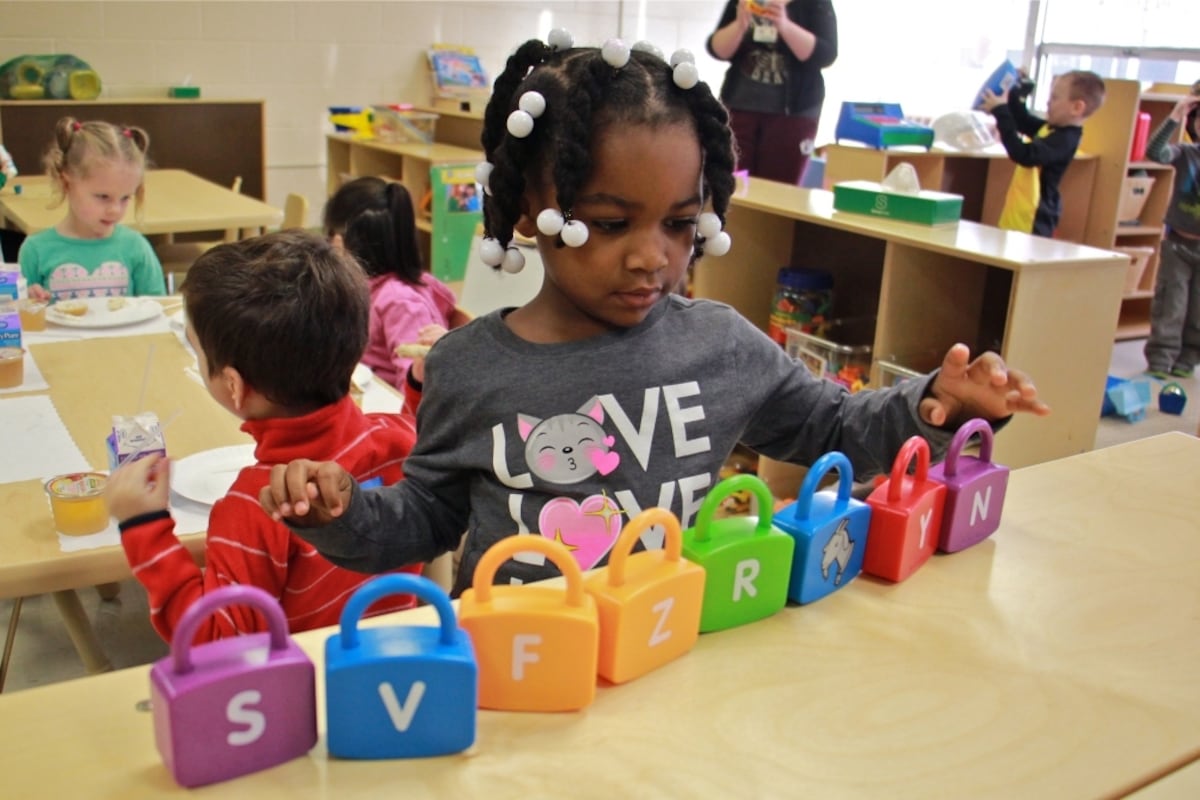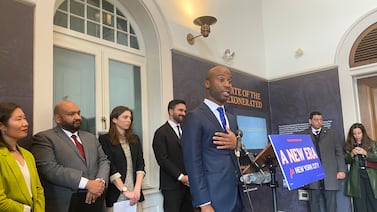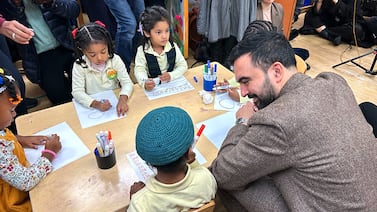Pre-pandemic, Black children in Pennsylvania had less access to high-quality preschool than white children, according to a new report.
Researchers at Pennsylvania State University found that this disparity was due primarily to the way the state funds its two main preschool programs, Child Care Works and Pre-K Counts, and the different standards policymakers have set for them. As overall enrollment in the program grew from 2014 to 2019, Black children’s enrollment in Pre-K Counts declined slightly, before the pandemic put unprecedented stress on early childhood education.
Child Care Works is the state’s subsidized child care program, while Pre-K Counts is its largest pre-kindergarten program. Together they served over 53,000 children as of 2019, with roughly 36,700 in Child Care Works, and 17,000 in Pre-K Counts.
Child Care Works is targeted toward low-income working families, those making under 200% of the federal poverty line, which was just above $25,000 for a family of four in 2019. Pre-K Counts has higher income eligibility – 300% of poverty – and does not require a parent to be working. Child Care Works is year-round, while Pre-K Counts tracks the academic year of 180 days.
The state pays more per child for Pre-K Counts, and overall funding for that program has nearly doubled between 2014 and 2019, while Child Care Works funding dropped by about 2%. While Pre-K Counts provides a standard amount of funding per child, funding for Child Care Works varies. In addition, the state rewards higher quality providers in Child Care Works with more money as an incentive to improve, she said.
More white children proportionally are enrolled in Pre-K Counts, which has more rigorous standards for teachers and overall programs, while more Black children are in Child Care Works, where standards exist but aren’t as stringent.
In both programs, white children are more likely to be in classrooms that have earned four stars – the highest level – on the state’s rating system, the report found. Besides teacher qualifications, these ratings take into account factors including space conditions, outreach to families, financial stability, and whether a center offers professional development for staff.
While 50.2% of white Pre-K Counts participants were enrolled with a four-star provider in 2019, for example, only 38.1% of Black participants were.
On the state’s four-star rating system, Pre-K Counts must earn a rating of three or four, while Child Care Works can include one and two.
“The disparities for Black children were stunning in terms of the lack of access to the providers that were going to be getting more support from the state of Pennsylvania,” said Erica Frankenberg, a Penn State professor of education and one of the report’s authors, in an interview.
The report recommends that “any policy aimed at improving quality, such as funding for higher teacher wages, should be applied to all providers serving young children of any age, not just those who teach in designated pre-k programs.”
The study did not include 2020 and 2021 because child care was disrupted for so many different reasons – fear of the virus, no vaccine availability for children under 5, more parents working from home – due to the pandemic. The researchers have a grant to do a follow-up study on what happened during those years.
“We are looking at that, that study is to come. It’s complicated,” said Frankenberg, who is director of Penn State’s Center for Education and Civil Rights.
The two programs are regarded differently by policymakers, she said, which partly accounts for the differences in funding and quality.
Pre-K Counts “is conceived of as preschool to benefit children, academically and socially, and Child Care Works is thought of as child care,” Frankenberg said. “One of the eligibility criteria is to have a parent who is working or is in an undergraduate program. It’s more about preserving the economic contribution of the parents rather than the social and academic enrichment of the child. So there are two different constructions and funding.”
The report recommends that the state “invest in broader policies that unify child care and pre-K.”
Even though enrollment in Pre-K Counts has been steadily growing, the number and percentage of Black students has dropped in recent years.
While white enrollment in Pre-K Counts grew by 53% and Latinx enrollment by 66% between 2014 and 2019, “the number of Black children participating … actually dropped by nearly 2%,” the report said. And overall enrollment growth in Pre-K Counts over those five years was 37%, compared to a slight decline in Child Care Works enrollment.
The report recommends finding a way to provide incentives for high-quality providers to locate in underserved areas, perhaps through grants. Frankenberg also said that both programs should provide more days and hours of care.
Early childhood education in Pennsylvania is a mix of programs and funding streams – state, federal and local – with varying requirements. In addition to these two state-funded programs, there is the federal Head Start program, and in Philadelphia, PHLPre-K, all with their own requirements. This can all be confusing for parents, Frankenberg said.
While Frankenberg does not support making early childhood options in the state “one size fits all,” she said: “We need to unify these funding streams.”
Dale Mezzacappa is a senior writer for Chalkbeat Philadelphia, where she covers K-12 schools and early childhood education in Philadelphia. Contact Dale at dmezzacappa@chalkbeat.org.






